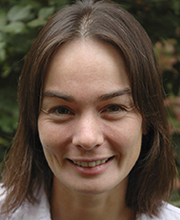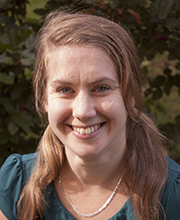The University of Reading Research Staff Conference: Research Funding, Strategy and Impact took place on the 4th February 2015. The Research Staff Committee (with the support of People Development) organised the conference to examine key issues facing Research Staff at Reading. This conference aimed to enable Research Staff to develop their own responses to the key issues of securing funding, developing a strategy and making an impact. The conference also provided an opportunity to network with fellow researchers from across the university.
Event Themes
• Presentations by senior representatives from the Research Councils on winning funding.
• Feedback on the University of Reading’s Research Strategy & REF Results.
• How to maximise your Research Impact
• Promotion for Research Staff
• Women and promotion in the University
• Non-academic career paths for Research Staff
• The European Commission Human Resource Excellence in Research Award
• Networking lunch
Both Macarena Cardenas (GES) and Pascal Flohr (Archaeology)attended the event, and answer some questions about their impression of the day:
What was your main impression of the Conference?
Pascal – It was great to meet research staff from different places in the University, and in fact to meet people from within the School. Working in an office or lab most days, you don’t always really speak to other research staff, even if they have their offices in the same corridor. The conference was a good opportunity to do exactly that.
It was useful to have some more general information on research within the University, but I mainly found the more specific workshops valuable. I attended a workshop on AHRC funding and one on careers outside academia. It was an eye-opener that the last session was very busy: I am clearly not the only one who wonders what to do if there is no job for me in academia (after all, only ~20% of post-doctoral researchers will be able to find a permanent position in academia).
Macarena – I thought this was a remarkable event. From the venue to the quality of speakers, I thought this was a valuable event and I personally took loads from it. Looking at the great effort from Dr Justin Hutchence I am not surprised with the organisation and quality of the Conference. I felt supported and valued.
I was pleased to see how much Research Staff and academics cared. Without the interest of participants this event would have not been as successful as it was. I personally loved to see how the people that attended the seminar that Dr Hutchence and I provided were so excited to share their thoughts. In fact some could not even get to write all their information on the flipcharts!
On the other hand, being behind the scenes and knowing how much planning and work this event took I feel that it has more value. Seeing the Development and Enterprise team working to have everything ready to go on time made me realise how much they care about Research Staff.
Were your expectations met?
Pascal – Yes.

Macarena Cardenas
Macarena – Absolutely, from both organising team sessions and the attendees. I thought people really appreciated the event from both sides, and this showed in the good attendance and atmosphere.
What did you think of your role within the conference? Do you think that you could have done more or something different?
Pascal – I was a participant. I could of course have been more involved in organising the conference, or a session, but I did not feel the need to do this (it was already done well!).
Macarena – You can always do more, can’t you? This experience makes me want to be a lot more involved the next time.
I would have not done anything different really. What I would include next time perhaps is hands on activities, and to create interdisciplinary groups to facilitate future collaboration.
About my role, I think I did give my best, and was as involved in as much as possible. I enjoyed talking to research staff and professors from other disciplines that otherwise would have not been possible. I believe I took the most I could from the day.
What are you taking away from this experience?

Pascal Flohr
Pascal – A lot of information on various aspects of research, like how to integrate impact into research, what the REF results mean, how to apply for funding, and how to assess which career to choose.
Macarena – Great learning and reinforcement that can be summarised in three words: Connect, Impact and Publish!
Would you recommend this event in the future to other research staff, and why?
Pascal – Yes. The main reason is that it is very nice to meet other research staff from various schools.
Macarena – I would absolutely recommend it. The networking, learning, and facilitation at this event were extremely valuable. Feeling supported and connected as research staff is key.
Did you see any difference in gender attending the conference? If yes, where was this evident?
Pascal – I had the idea that the conference participants were about 50:50 male:female, or in any case that the numbers were not specifically much more leaning to one side or the other. It was striking though that all the main speakers, so those in the plenary session, were male, and also the majority of members of the Research Staff Committee are male (including the chair). It is of course possible that this is coincidence, after all we are talking about small numbers. But I think it is likely that this is mirroring the general trend in (and outside of) academia where there are about equal numbers of female and male undergraduate students, post-graduate students, and post-doctoral researchers, after which suddenly relatively few women are present in permanent academic roles and especially in management roles.
Macarena – The only difference I noticed was that the Professors invited to speak in the general sessions were only males, but that just appears to demonstrate the reality of the percentage of women in high academic positions. There were some female academics giving talks in masterclasses and seminars.
Would you say that the conference addressed and supported both genders equally?
Pascal – Yes, I did not notice any difference in how different genders were addressed.
Macarena – Yes, equal support. I did not notice any reinforcement to any gender in particular. All presentations and speeches were neutral and supportive to both research staff and academics.
Any further comments?
Macarena – That I enjoyed it, learned a lot and would recommend it to both academic and research staff.
 Agatha Herman (GES) is a human geographer with interests in geographies of ethics and justice. In particular her research explores the role and impacts of socio-economic and environmental ethics in production systems and spaces. She currently holds a Leverhulme Early Career Fellowship in which she is investigating the capacity of Fairtrade to promote resilient and ethical development within and beyond its producer communities. Building on her PhD research, this focuses on the Fairtrade wine sector and will involve fieldwork in South Africa, Chile, Argentina, Tunisia and Germany.
Agatha Herman (GES) is a human geographer with interests in geographies of ethics and justice. In particular her research explores the role and impacts of socio-economic and environmental ethics in production systems and spaces. She currently holds a Leverhulme Early Career Fellowship in which she is investigating the capacity of Fairtrade to promote resilient and ethical development within and beyond its producer communities. Building on her PhD research, this focuses on the Fairtrade wine sector and will involve fieldwork in South Africa, Chile, Argentina, Tunisia and Germany.















